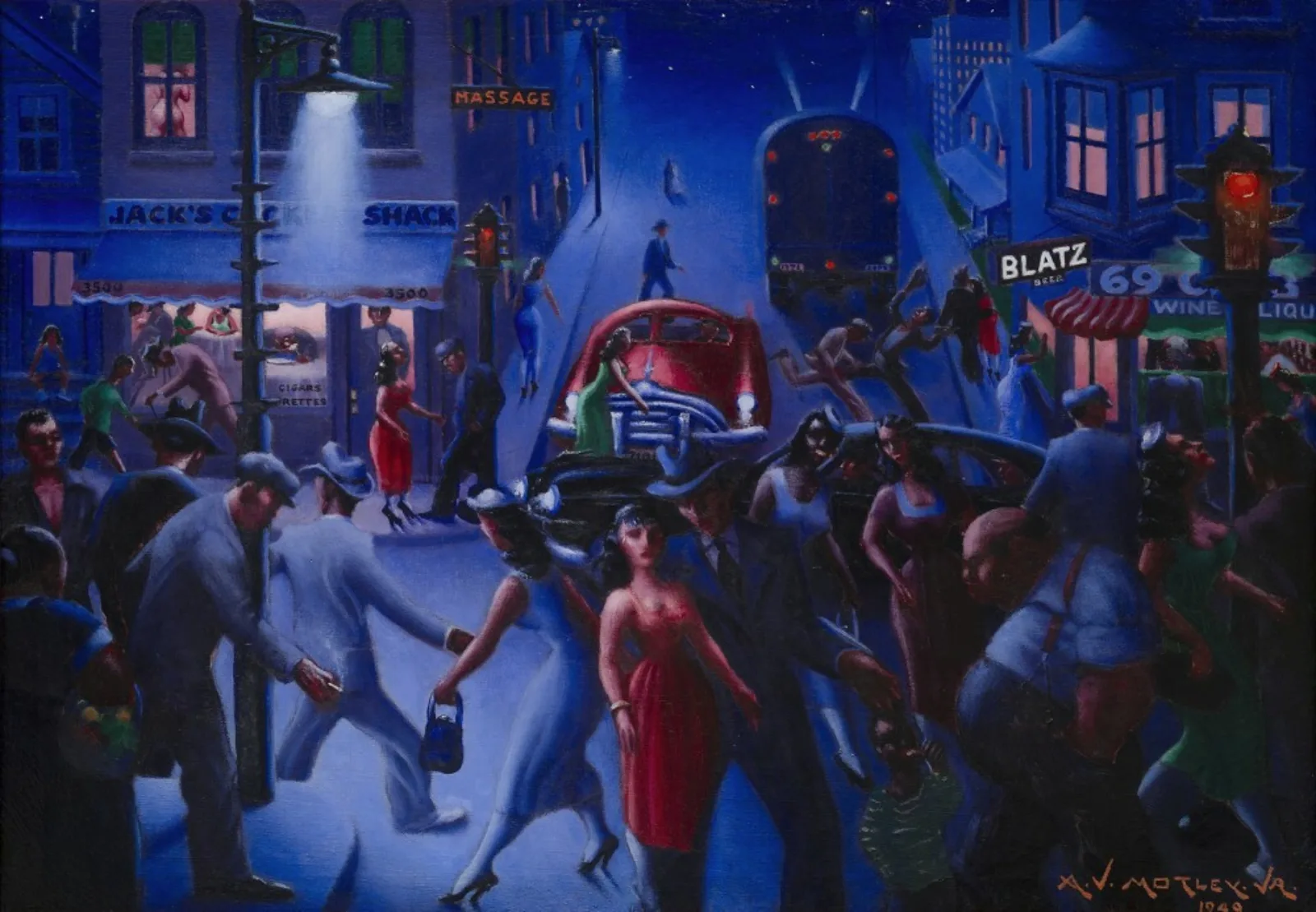Class Description
Chicago became the home of the “New Negro Movement” in the early 1920s. One goal of the movement was to create a separate economic system where control over the production of goods, services, and cultural expressions was centered in a marketplace focused on African American consumers. This became known as the Black Metropolis. From 1924 to 1929, the Black Metropolis was the most prosperous self-contained African American community in Chicago’s history. Chicago’s Black Metropolis represents a time when the African American community in Chicago strived to overcome white racism and institutionalized segregation by building a “city within a city” – a rationally structured separate economic and social system. The Black Metropolis was responsible for the creation of national trends in culture especially in music, art, and literature. The economic and aesthetic contributions of the Chicago Black Renaissance are often lost in the shadows of the Harlem Renaissance. The economic hardships of the Great Depression coupled with the institutional response to the Black Metropolis ultimately ended the ability of African Americans to sustain a separate city in Chicago.
Topics covered for this class include: Chicago’s “New Negro” ethos, the Old Settler world in the Black Metropolis, the New Settler world in the Black Metropolis, policy kings, Archibald Motley’s vision of Chicago’s Jazz Age, Chicago’s Black Belt movie theaters, moviegoing in the in Black Metropolis, early African American filmmaking, the early films of Oscar Devereaux Micheaux, religious practices in mainline Protestant Churches and the Sanctified Church, early influences on the creation of gospel music, the rise of a sacred culture in race records and radio, and the emergence of gospel music in the 1930s. This course includes digital materials from the Newberry Library from “The Negro in the City” lantern slide collection.
Dr. Chris Stacey is a cultural historian who taught Chicago history at DePaul University and the University of Illinois Chicago. Since 2021, he has presented a series of virtual public lectures on Chicago's history. Chris has taught courses at the Newberry Library beginning in the Fall session of 2023.
Please note: class materials will include outdated language and discussion of racism. See the Newberry’s Statement on Potentially Offensive Materials and Descriptions.
Materials List
Required
- Reed, Christopher Robert, The Rise of Chicago’s Black Metropolis, 1920-1929. University of Illinois Press, 2014. ISBN: 978-0252080104 — Now available at the Newberry Bookshop!
- Other Instructor-Distributed Materials
First Reading
- Before our first class the instructor will email you a journal article and other source material on the historical and intellectual framework for the concept of "The New Negro".
A Brief Syllabus
- Chicago’s Black Metropolis
- The Quest for Economic and Cultural Autonomy
- The Films of Oscar Deveraux Micheaux
- The Art of Archibald Motley
- The Emergence of Gospel Music
Cost and Registration
5 Sessions, $220 ($198 for Newberry members, seniors, and students). Learn about becoming a member.
We offer our classes at three different price options: Regular ($220), Community Supported ($210), and Sponsor ($230). Following the models of other institutions, we want to ensure that our classes are accessible to a wider audience while continuing to support our instructors. You may choose the price that best fits your situation when registering through Learning Stream.
To register multiple people for this class, please go through the course calendar in Learning Stream, our registration platform. When you select the course and register, you’ll be prompted to add another registrant.
RegisterSupport the Newberry
Your generosity is vital in keeping the library’s programs, exhibitions, and reading rooms free and accessible to everyone.
Make a GiftQuestions?
Call us at (312) 255-3700 or send us an email at adulteducation@newberry.org.
Our office hours are Tuesday through Thursday, 10 am–6 pm CT.
We are available by email Tuesday through Saturday.
